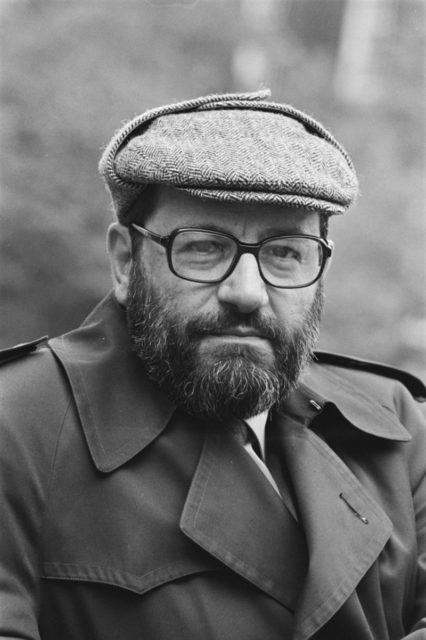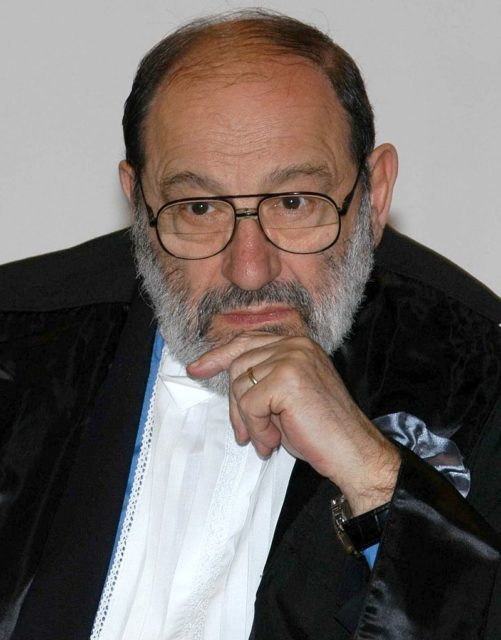Umberto Eco became an international literary celebrity in 1980 when he published his first novel entitled “The Name of the Rose.”
In the following years, Eco received worldwide literary acclaim and established himself as one of the best contemporary writers with his novels “Foucault’s Pendulum” and “The Island of the Day Before.”

Before writing “The Name of the Rose,” Eco was already a prominent figure in the Western circles of philosophy and literary theory; he was famous for his constructive and detailed literary criticism and his work on the theory of semiotics. He was 48 years old when he wrote his first novel, and the academic world was astonished when he revealed his secret passion for writing and narrating.
Several years before writing “The Name of the Rose,” Eco was approached by one of his friends who worked for a major Italian publisher. She invited Eco to write a short detective story which would be published in her magazine, but Eco declined the offer and jokingly told her that his detective story would be 500 pages long and it would take place in a medieval monastery.

Since Eco was originally a historian who extensively studied the Middle Ages, the joke soon turned into an actual idea, and Eco began researching historical and philosophical themes that were the basis for the plot of “The Name of the Rose.” He started working on the book by creating the names of the prominent friars of his fictional monastery.
Eco worked on “The Name of the Rose” for two years, which seems a rather short time considering that the book is almost 500 pages long and it incorporates several complex philosophical concepts followed by an impressive amount of intertextual references. His next novel, the ethereal and cryptic “Foucault’s Pendulum,” took him eight years to write but the work paid off as he produced another masterpiece of contemporary fiction.

Eco died in 2016 after publishing seven novels altogether. In the theoretical texts which he wrote earlier in his career, he frequently emphasized the idea that good authors need to build complete and plausible fictional worlds for their narratives to be autonomous and effective.
He proved the validity of this principle in all of his novels by constructing narratives which immerse the readers into strange, yet familiar, fictional worlds.
